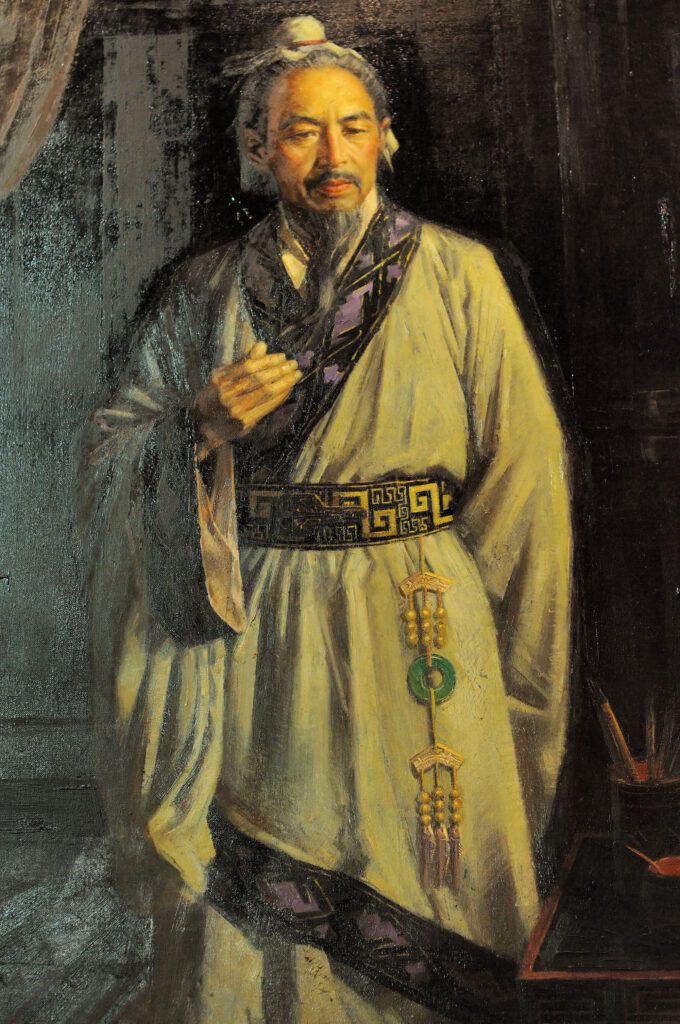“Sun Tzu’s The Art of War” is an ancient Chinese military treatise that has withstood the test of time and continues to influence military strategy, as well as various other fields, to this day. With its emphasis on efficient and effective strategies, this two-thousand-year-old text provides timeless wisdom and insights into the art of warfare. Sun Tzu’s teachings on thorough preparation, understanding the enemy, psychological warfare, and flexibility have found applications in business, sports, and politics. This influential book is a valuable resource for military leaders, businessmen, athletes, and politicians, serving as a guide to achieving success and victory.
Sun Tzu’s The Art of War: Ancient Military Strategy that Continues to Influence History
Introduction
Sun Tzu’s “The Art of War” is an ancient Chinese military treatise that has not only stood the test of time but continues to influence military strategy and tactics to this day. Written over two thousand years ago, this ancient text provides timeless wisdom and invaluable insights into the art of warfare. With its emphasis on efficient and effective strategies, it has become an essential resource for military leaders, businessmen, and even sports coaches.
The Author and the Book
Sun Tzu, also known as Sunzi, was an esteemed Chinese general, tactician, and philosopher. He is believed to have lived during the Eastern Zhou period, from the 6th to the 5th century BCE. While historical records about his life are scant, his teachings and philosophies remain widely respected and studied.
Originally written in ancient Chinese, “The Art of War” is composed of thirteen chapters. Each chapter delves into different aspects of warfare, covering topics such as strategy, tactics, leadership, and the importance of thorough preparation. The book also provides insights into understanding the enemy and the dynamics of power.
Key Concepts and Teachings
The central theme of “The Art of War” revolves around the notion that victory can be achieved through careful planning, strategic deployment of resources, and understanding the psychology of the enemy. Some of the key teachings include:
1. The Importance of Preparation and Planning
Sun Tzu emphasizes the importance of thorough preparation before engaging in any battle. He highlights the significance of understanding the terrain, knowing oneself, and assessing the enemy’s strengths and weaknesses. According to him, a well-thought-out plan can determine the outcome of the conflict.
2. Understanding the Enemy
Another fundamental concept discussed in the book is the need to thoroughly understand the enemy. Sun Tzu stresses the importance of gathering intelligence, analyzing the enemy’s behavior, and exploiting weaknesses. He encourages avoiding direct confrontation whenever possible, opting for indirect strategies that weaken the opponent’s position.
3. The Art of Psychological Warfare
Sun Tzu believed that victories could be achieved without bloodshed if an enemy could be psychologically weakened or demoralized. He advocates for strategies that exploit the enemy’s emotions, perceptions, and motivations. By understanding the psychology of the enemy, one can manipulate their actions and gain a strategic advantage.
4. Flexibility and Adaptability
“The Art of War” stresses the importance of being flexible and adaptable in the face of changing circumstances. Sun Tzu argues that successful leaders should be able to adjust their strategies and tactics accordingly, reacting to the enemy’s moves and exploiting any emerging opportunities.
Continuing Influence
Although “The Art of War” was written for military purposes, its teachings and principles have transcended the battlefield and continue to find application in various aspects of life. The book has been widely embraced in fields such as business, sports, and politics.
In Business
Many business leaders have turned to “The Art of War” for guidance. Its focus on strategic planning, competition, and leadership has made it a valuable resource when it comes to understanding and managing business dynamics. Sun Tzu’s principles have been applied to areas such as marketing, negotiations, and decision-making.
In Sports
Coaches and athletes often draw inspiration from “The Art of War” in their pursuit of victory. The emphasis on strategy, teamwork, and discipline aligns with the philosophy of top sports teams and individuals. By understanding the psychology of the competition and adapting strategies accordingly, athletes can gain a competitive edge.
In Politics
The teachings of “The Art of War” have also found relevance in the political realm. Understanding the dynamics of power, persuasion, and negotiation is crucial for politicians aiming to achieve their goals. By applying the principles of Sun Tzu, political leaders can make informed decisions and devise effective strategies.
Conclusion
Sun Tzu’s “The Art of War” remains a timeless military treatise that has influenced the course of history. Its teachings on strategic planning, understanding the enemy, and the importance of preparation have made it invaluable not only in warfare but also in various other fields. As long as conflicts exist, this ancient text will continue to inspire and guide individuals and organizations seeking success and victory.
